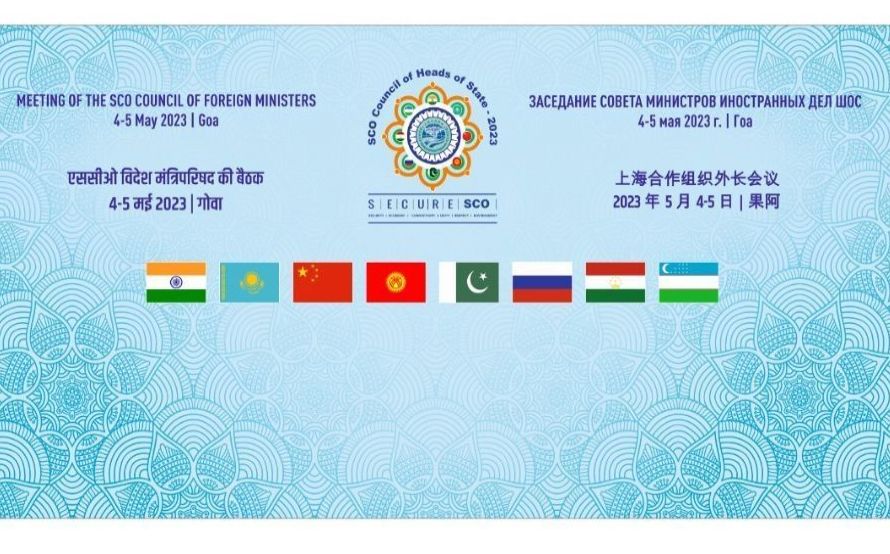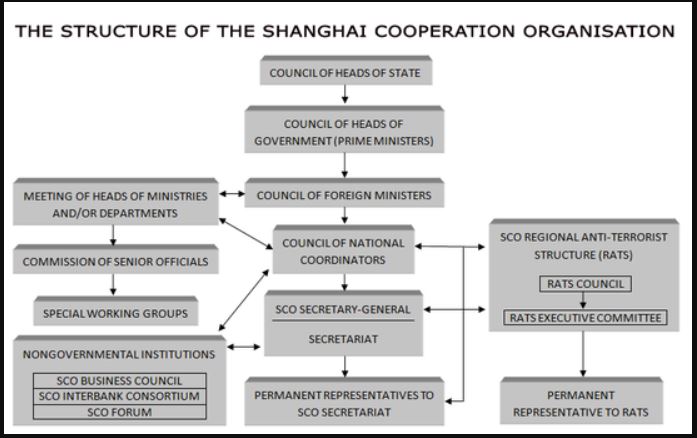
Setting up Tone for SCO Finale in July 2023
A recent event in Goa, India has drawn world’s attention. Why are so many Foreign Ministers visiting India at one point of time?
Here are the answers..
Foreign ministers of eight member states of the Shanghai Cooperation Organization (SCO) conducted a meeting in Goa on Thursday and Friday, May 4th and 5th 2023. This crucial meeting will set the stage for the SCO Leaders’ Summit to be held in July in New Delhi.
What is SCO?
The Shanghai Cooperation Organization (SCO) is an intergovernmental organization founded in Shanghai on 15 June 2001 by six countries, People’s Republic of China, Kazakhstan, Kyrgyz Republic, Russia, Tajikistan, and Uzbekistan.
Prior to that, all of the above countries, except for Uzbekistan, were members of the Shanghai Five, a political association based on the Agreement on Confidence-Building in the Military Field in the Border Area (Shanghai, 1996) and the Agreement on the Mutual Reduction of Armed Forces in the Border Area (Moscow, 1997). These two documents laid down a mechanism of mutual trust in the military sphere in the border area and contributed to the establishment of true partnerships. Following the accession of Uzbekistan to the organisation in 2001, the Shanghai Five was renamed the SCO.
India and Pakistan became its permanent members in 2017. There are observer states interested in ascending its full membership namely, Afghanistan; Belarus; and Mongolia. It has six dialogue partners- Armenia; Azerbaijan; Cambodia; Nepal; Sri Lanka; and, Turkey. In 2021, the decision was made to start the accession process of Iran to the SCO as a full member, and Egypt, Qatar as well as Saudi Arabia became dialogue partners.
Objectives
- strengthen relations among member states;
- promote cooperation in political affairs, economics and trade, scientific-technical, cultural, and educational spheres as well as in energy, transportation, tourism, and environmental protection;
- safeguard regional peace, security, and stability; and
- create a democratic, equitable international political and economic order.
The SCO has mainly focused on regional security issues, its fight against regional terrorism, ethnic separatism and religious extremism. To date, the SCO’s priorities also include regional development.
Functions & Operations
With assistance from the Asian Development Bank and the United Nations Economic and Social Commission for Asia and the Pacific, SCO members have developed an intergovernmental agreement on facilitating international road transport. SCO member countries account for about 40% of the global population, nearly 20% of the global GDP and 22% of the world’s land mass.
It has a number of bodies, such as the Council of Heads of State, the Council of Ministers of Foreign Affairs, and the Council of National Coordinators. The supreme decision-making body in the SCO is the Heads of State Council (HSC). The HSC meets once a year and adopts guidelines and decisions on all important matters of the SCO. The SCO Heads of Government Council (HGC) meets once a year to discuss the organization’s multilateral cooperation strategy and priority areas, to resolve current important economic and other cooperation issues
The organization has two permanent bodies — First is the Executive Committee of the Regional Anti-Terrorist Structure (RATS) based in Tashkent and the second is the SCO Secretariat based in Beijing. The Director of the Executive Committee of the SCO RATS and SCO Secretary-General are appointed by the Council of Heads of State for a term of 3years.
The SCO Secretariat coordinates the activity of the SCO and provides informational, analytical, legal, organisational and technical support. The Secretariat is headed by the Secretary-General. Nominated by the Council of Ministers of Foreign Affairs and approved by the Heads of State Council, the Secretary-General is appointed from among citizens of the SCO member states on a rotating basis in Russian alphabetical order for a single three-year term with no possibility of extension.

Partnership with United Nations (UN)
The SCO has been an observer in the UN General Assembly since 2005. In April 2010, the UN and SCO Secretariats signed a Joint Declaration on Cooperation. SCO Secretariat has also established partnerships with the UN Educational, Scientific and Cultural Organization (UNESCO), the World Tourism Organization (UNWTO), and the International Organization for Migration (IOM), in addition to its ongoing cooperation with the UN Office on Drugs and Crime (UNODC), United Nations Economic and Social Commission for Asia and the Pacific (ESCAP) and the UN Office on Counter-Terrorism (UNOCT).
The Department of Political and Peacebuilding Affairs (DPPA), as well as UNRCCA (United Nations Centre for Preventive Diplomacy for Central Asia) maintain regular contacts with the SCO officials. The cooperation activities focus on security developments in the region and key issues related to counterterrorism and prevention of violent extremism.
Highlights of Summit in Samarkand, Uzbekistan, 2022
- The Samarkand declaration advocated “commitment to peaceful settlement of differences and disputes between countries through dialogue and consultation”.
- They stress that the principles of mutual respect for sovereignty, independence, territorial integrity of States, equality, mutual benefit, non- interference in internal affairs, and non-use or threat of use of force are the basis for sustainable development of international relations.
- The member countries are planning to develop common principles and approaches to form a unified list of terrorists, separatist and extremist organizations whose activities are prohibited on the territories of the SCO member states.
India’s Presidency in 2023
The theme of India’s Chairmanship of SCO in 2023 is ‘SECURE-SCO’. India attaches special importance to SCO in promoting multilateral, political, security, economic and people-to-people interactions in the region.
“The ongoing engagement with SCO has helped India promote its relations with the countries in the region with which India has shared civilizational linkages, and is considered India’s extended neighbourhood,” said an official statement.
“SCO pursues its policy based on the principles of sovereignty and territorial integrity of nations, non-interference in internal affairs, equality of all member States and mutual understanding and respect for opinions of each of them,” it added.
Since becoming a full member of the SCO in 2017, India has been nudging the bloc to add ‘English’ as an official language of communication. The first such proposal was placed in 2020, necessitated by the inclusion of India and Pakistan as full members to a grouping that has had only Russian and Mandarin as the official and working languages of the bloc which was founded by Russia, China and four Central Asian nations where Russian language is widely in use. On the agenda for the SCO under India’s presidency will also be modernisation of the grouping with focus on advanced technology and digital infrastructure. The agenda also includes discussions with regional counterparts on various regional, security, and political issues.
Knowledge-sharing platform is aimed at providing analytical insights into Economy, Public Policy and Foreign Policy.


